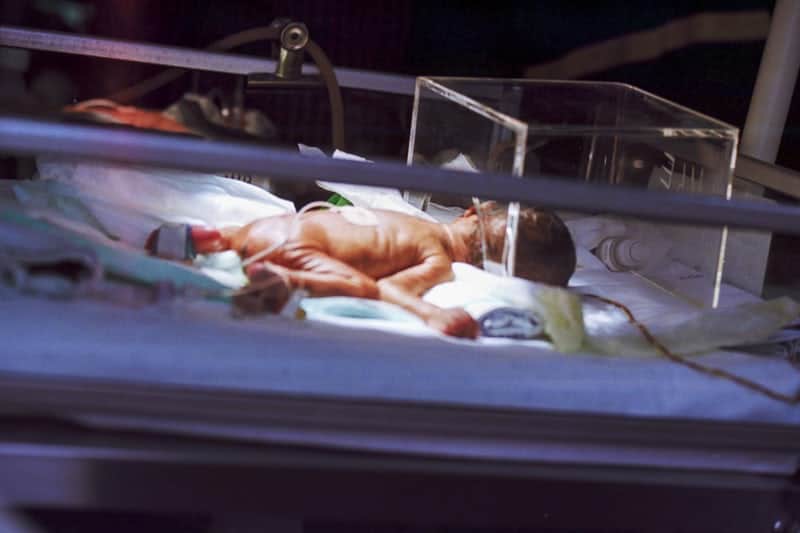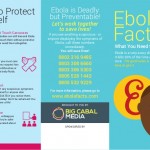Premature births are births that take place more than three weeks before the baby’s estimated due date. In other words, premature birth is one that occurs before the start of the 37th week of pregnancy.
There are sub-categories of preterm birth, based on gestational age:
- Extremely preterm (<28 weeks)
- Very preterm (28 to <32 weeks)
- Moderate to late preterm (32 to <37 weeks).
Premature babies, especially those born very early, often have complicated medical problems. Typically, complications of prematurity vary. But the earlier your baby is born, the higher the risk of complications.

Rate of Preterm Birth
Globally over 15 million infants are born too early, too small and too sick each year: that’s one in 10 babies. Despite the high number of preterm births in the world, there is little known about the prevention of preterm delivery and the problems and risks for the development of preterm babies so far.
More than 60% of premature births occur in Africa and South Asia, but preterm birth is truly a global problem. In the lower-income countries, on average, 12% of babies are born too early compared with 9% in higher-income countries. Within countries, poorer families are at higher risk.
According to the WHO; The 10 countries with the greatest number of preterm births are:
- India: 3,519,100
- China: 1,172,300
- Nigeria: 773,600
- Pakistan: 748,100
- Indonesia: 675,700
- United States of America: 517,400
- Bangladesh: 424,100
- Philippines: 348,900
- The Democratic Republic of the Congo: 341,400
- Brazil: 279,300
There is a dramatic difference in the survival of premature babies depending on where they are born. For example, more than 90% of extremely preterm babies (less than 28 weeks) born in low-income countries die within the first few days of life; yet less than 10% of extremely preterm babies die in high-income settings.
When it comes to prematurity, it can be hard to separate myth from fact. Parents are flooded with information from doctors, nurses, and well-meaning friends and family. Not to mention the internet, which has it’s own pros and cons.
Here are some truths and myths about premature births.
Myth 1 – You caused this.
Parents of preemies carry a great deal of guilt when it comes to their preterm delivery, beating ourselves up for failing our babies and not being able to protect them.
Fact
According to the World Health Organization, roughly half of all preterm births are due to unknown causes. About 30% are due to preterm premature rupture of membranes (pPROM), and 15-20% are due to medical causes such as preeclampsia, placental abruption, intrauterine growth restriction (IUGR), or elective preterm deliveries. Other causal factors linked to preterm birth include prior medical conditions, genetics, environmental influences, infertility treatments, and improper prenatal care. (WHO)
Often times, parents think they are responsible for premature births. However, chances are you did absolutely nothing to cause your premature delivery. Prematurity can happen to anyone, even when expectant mothers “do everything right.”
Myth 2 – You won’t be able to bond with your baby.
If you can’t hold your baby or sometimes even touch them, how will you ever create a loving bond with them?
Fact
You may not be taking your baby home right away, but there are a multitude of ways to bond with your baby. NICU parents just have to find new ways to connect with their baby around the NICU routines. The following are ways you can connect with your baby even at the intensive care unit :
- Take part in skin-to-skin, AKA kangaroo care.
- Read or sing to your baby. Listen to episode 7 of the NICU Now podcast, where special guests Patricia Weiner and Emily Lawton talk about how to bond with your NICU baby through books. Then listen to episode 8, with NICU dad Tom French, who shares how reading Harry Potter to his daughter Juniper helped get them through her sometimes gruelling six-month stay.
- Change diapers, take baby’s temperature, participate in feeding if possible.
- Bring items from home: photos, special blankets, items with your scent and more. Ask your NICU what is allowed in and around baby’s isolette or crib.
Myth 3– Your baby will be all caught up by age two!
By the age of two, the child will be all caught up.
Fact
Maybe! But not necessarily. Most parents stop correcting for adjusted age around age two, but that doesn’t mean all former preemies will be on par with their peers by that age. Some preemies, especially very preterm and low birth weight babies, can still have delays in language development, gross motor skills (i.e. balance and coordination) and fine motor skills (i.e. holding a pencil, putting puzzle pieces together). About 40% of preterm children will have mild motor impairments. (Raising Children)
Some NICU babies will receive occupational and physical therapy interventions in the NICU and right after coming home. For others, the discovery of motor delays and sensory issues may not arise until years later.
Myth 4– Your 36-weeker isn’t really a preemie.
Fact
A preemie is defined as any baby born before the 37th week of pregnancy is completed. (WHO) Babies born between 34 and 37 weeks are considered “late term preemies.” While they often look like smaller versions of term babies, research has shown that they have a unique set of needs and challenges. And yes, they are still considered preemies.
Common challenges late-term preemies face are:
- Respiratory problems
- Hypoglycemia
- Jaundice
- Poor thermoregulation
- Feeding challenges
Late-term preemies generally fair well medically and often have normal development in the first year of life. However, many of these babies present delays and learning difficulties as they grow, called “invisible disabilities.” Common challenges include:
- Speech delays
- Reading/writing difficulties
- Comprehension
- Attentiveness
- Impulse control
- Organization skills
Read more about invisible disabilities in this article from Dr. Adiaha Spinks-Franklin: Invisible Disabilities: Advocating for the Unseen.
Myth 5– Your journey ends when you leave the NICU.
Your baby is healthy enough to come home! Now you can leave the NICU behind you.
Fact
Bringing your NICU graduate home is an amazing milestone, but it doesn’t mean the journey is over. What friends and loved ones – and many NICU parents themselves – may not understand is that a premature or traumatic birth and NICU stay can have lasting physical and emotional issues for both kids and parents. NICU families have up to a 70% chance of developing anxiety, depression, and PTSD(NCBI). NICU parents are also at a higher risk for separation, divorce, and child abuse.
While those statistics may sound grim, they only enhance the need for NICU awareness and support for NICU parents both during their NICU stay and after. Research has shown that the mental health of the parent is as important as the medical care of the baby (NPA). Hospitals are taking this new information into consideration and developing more family-friendly initiatives that help get parents more involved in the care of their baby and help prepare them for life after the NICU.
Prematurity Awareness Day
When Prematurity Awareness Day rolls around each year, we say to ourselves, yes we are aware of what premature births are. The term seems self-explanatory. We all assume we know what it means. It might be true that even though we might not have first-hand experience, we might have friends and associates who have experienced it. Hence, we assume we are fully knowledgeable about premature births. But what does awareness really mean?
- knowing that something (such as a situation, condition, or problem) exists
- feeling, experiencing, or noticing something (such as a sound, sensation, or emotion)
- knowing and understanding what is happening in the world or around you
Parents can experience guilt, depression, and even PTSD for months and years after their NICU journey has ended. Prematurity can result in learning disabilities, behavioural issues, and other long-term problems that cannot be predicted upon discharge. Up to 45 per cent of infants weighing less than 3 1/4 pounds at birth have one or more abnormalities on testing at school age (source).
Consequently, the best way to improve the awareness level about premature births is to seek the right knowledge about premature births. Also, it is important to realize that while knowledge about premature birth is important, the emotion that trails the experience is equally important. The emotions can result in guilt that is carried for years or successes that can only be described as miracles. It is therefore important that parents seek adequate knowledge.
Click to read: [Pregnancy Concerns Expectant Women Should Know About]



